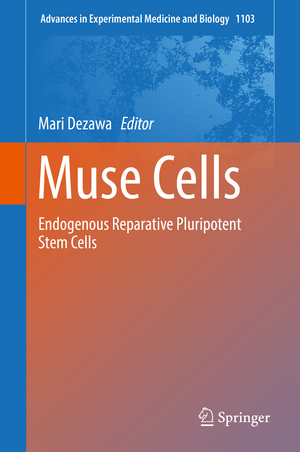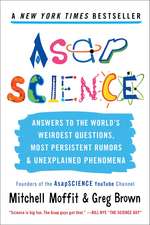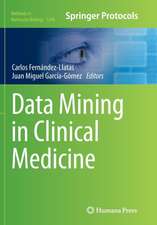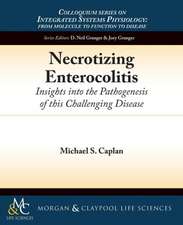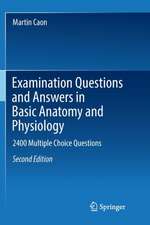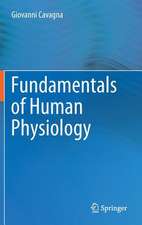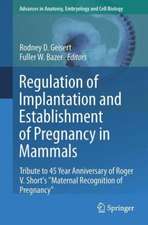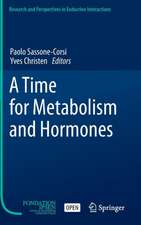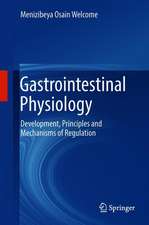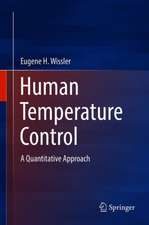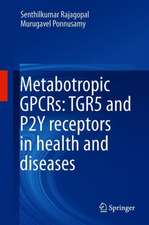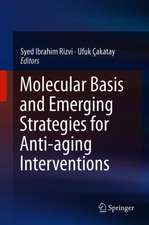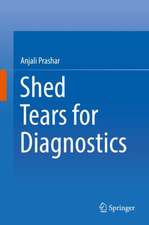Muse Cells: Endogenous Reparative Pluripotent Stem Cells: Advances in Experimental Medicine and Biology, cartea 1103
Editat de Mari Dezawaen Limba Engleză Hardback – 12 dec 2018
Din seria Advances in Experimental Medicine and Biology
- 9%
 Preț: 719.56 lei
Preț: 719.56 lei - 5%
 Preț: 717.00 lei
Preț: 717.00 lei - 5%
 Preț: 717.00 lei
Preț: 717.00 lei - 15%
 Preț: 640.24 lei
Preț: 640.24 lei - 5%
 Preț: 715.71 lei
Preț: 715.71 lei - 5%
 Preț: 716.28 lei
Preț: 716.28 lei - 20%
 Preț: 691.93 lei
Preț: 691.93 lei - 5%
 Preț: 1031.00 lei
Preț: 1031.00 lei - 5%
 Preț: 820.42 lei
Preț: 820.42 lei - 5%
 Preț: 716.28 lei
Preț: 716.28 lei - 15%
 Preț: 641.38 lei
Preț: 641.38 lei - 5%
 Preț: 717.20 lei
Preț: 717.20 lei - 5%
 Preț: 715.35 lei
Preț: 715.35 lei - 5%
 Preț: 1113.83 lei
Preț: 1113.83 lei - 20%
 Preț: 1161.71 lei
Preț: 1161.71 lei - 5%
 Preț: 1170.51 lei
Preț: 1170.51 lei - 18%
 Preț: 1119.87 lei
Preț: 1119.87 lei - 5%
 Preț: 1288.48 lei
Preț: 1288.48 lei - 5%
 Preț: 1164.67 lei
Preț: 1164.67 lei - 5%
 Preț: 1101.73 lei
Preț: 1101.73 lei - 18%
 Preț: 1123.67 lei
Preț: 1123.67 lei - 5%
 Preț: 1435.64 lei
Preț: 1435.64 lei - 20%
 Preț: 1044.10 lei
Preț: 1044.10 lei - 18%
 Preț: 946.39 lei
Preț: 946.39 lei - 5%
 Preț: 292.57 lei
Preț: 292.57 lei - 18%
 Preț: 957.62 lei
Preț: 957.62 lei - 18%
 Preț: 1235.76 lei
Preț: 1235.76 lei - 5%
 Preț: 1231.55 lei
Preț: 1231.55 lei - 5%
 Preț: 1292.30 lei
Preț: 1292.30 lei - 5%
 Preț: 1102.10 lei
Preț: 1102.10 lei - 18%
 Preț: 1132.81 lei
Preț: 1132.81 lei - 5%
 Preț: 1165.19 lei
Preț: 1165.19 lei - 5%
 Preț: 1418.48 lei
Preț: 1418.48 lei - 5%
 Preț: 1305.63 lei
Preț: 1305.63 lei - 18%
 Preț: 1417.72 lei
Preț: 1417.72 lei - 18%
 Preț: 1412.99 lei
Preț: 1412.99 lei - 24%
 Preț: 806.15 lei
Preț: 806.15 lei - 18%
 Preț: 1243.29 lei
Preț: 1243.29 lei - 5%
 Preț: 1429.44 lei
Preț: 1429.44 lei - 5%
 Preț: 1618.70 lei
Preț: 1618.70 lei - 5%
 Preț: 1305.12 lei
Preț: 1305.12 lei - 18%
 Preț: 1124.92 lei
Preț: 1124.92 lei - 5%
 Preț: 1097.54 lei
Preț: 1097.54 lei - 15%
 Preț: 649.87 lei
Preț: 649.87 lei - 5%
 Preț: 1097.54 lei
Preț: 1097.54 lei - 18%
 Preț: 945.79 lei
Preț: 945.79 lei - 5%
 Preț: 1123.13 lei
Preț: 1123.13 lei - 20%
 Preț: 816.43 lei
Preț: 816.43 lei
Preț: 1001.73 lei
Preț vechi: 1054.45 lei
-5% Nou
Puncte Express: 1503
Preț estimativ în valută:
191.68€ • 200.67$ • 158.60£
191.68€ • 200.67$ • 158.60£
Carte tipărită la comandă
Livrare economică 01-07 aprilie
Preluare comenzi: 021 569.72.76
Specificații
ISBN-13: 9784431568452
ISBN-10: 443156845X
Pagini: 285
Ilustrații: XII, 315 p. 132 illus., 89 illus. in color.
Dimensiuni: 155 x 235 mm
Greutate: 0.7 kg
Ediția:1st ed. 2018
Editura: Springer
Colecția Springer
Seria Advances in Experimental Medicine and Biology
Locul publicării:Tokyo, Japan
ISBN-10: 443156845X
Pagini: 285
Ilustrații: XII, 315 p. 132 illus., 89 illus. in color.
Dimensiuni: 155 x 235 mm
Greutate: 0.7 kg
Ediția:1st ed. 2018
Editura: Springer
Colecția Springer
Seria Advances in Experimental Medicine and Biology
Locul publicării:Tokyo, Japan
Cuprins
Foreword.- Preface.- Chapter 1 The Muse cell discovery; thanks to wine and science.- Chapter 2 Basic characteristics of Muse cells.- Chapter 3 Muse cells are endogenous reparative stem cells.- Chapter 4 Protocols for isolation and evaluation of Muse cells.- Chapter 5 Stem cells and DNA repair capacity: Muse stem cells are among the best performers.- Chapter 6 Immunomodulatory properties and potential therapeutic benefits of Muse cells administration in diabetes.- Chapter 7 The Role of the Mitochondria in the Evolution of Stem Cells, Including MUSE Stem Cells, and Their Biology.- Chapter 8 Acute myocardial infarction, cardioprotection, and Muse cells.- Chapter 9 Application of Muse Cell Therapy to Stroke.- Chapter 10 Muse Cell – A New Paradigm for Cell Therapy and Regenerative Homeostasis in Ischemic Stroke.- Chapter 11 Application of Muse cell therapy for kidney diseases.- Chapter 12 Liver regeneration supported by Muse cells.- Chapter 13 Current cell based therapies in the chronicliver diseases.- Chapter 14 Artificial pigmented-human skin created by Muse cells.- Chapter 15 Muse Cells and Aortic Aneurysm.- Chapter 16 Muse cells and ischemia-reperfusion lung injury.- Chapter 17 Clinical trials of Muse cells.- Chapter 18 Future of Muse Cells.
Notă biografică
Mari Dezawa, M.D., Ph.D., is professor and chairperson at the Department of Stem Cell Biology and Histology, Tohoku University Graduate School of Medicine (Japan). She has contributed to regenerative medicine by discovering non-tumorigenic reparative pluripotent stem cells, multilineage-differentiating stress-enduring (Muse) cells that naturally reside in the living body. Dr. Dezawa graduated from Chiba University School of Medicine in 1989 and gained her Ph.D. from the same university in 1995. In 2000 she joined Yokohama City University, where she started mesenchymal stem cell (MSC) research. After moving to Kyoto University Graduate School of Medicine as associate professor in 2003, she discovered methods to induce neurons and skeletal muscle cells from human MSCs by combining gene introduction and cytokine stimulation. In 2008, she became professor and chair of the Department of Stem Cell Biology and Histology at Tohoku University Graduate School of Medicine. She subsequently has published a number of articles in leading journals on Muse cells and their reparative functions in animal disease models. Dr. Dezawa is the author of more than 120 original articles in international journals and serves as an editorial board member of several international journals. She is a fellow of the National Academy of Inventors, USA.
Textul de pe ultima copertă
This book provides the first comprehensive account of multilineage-differentiating stress-enduring (Muse) cells, a pluripotent and non-tumorigenic subpopulation of mesenchymal stem cells (MSCs) that have the ability to detect damage signals, migrate to damaged sites, and spontaneously differentiate into cells compatible with the affected tissue, thereby enabling repair of all tissue types. The coverage encompasses everything from the basic properties of Muse cells to their tissue repair effects and potential clinical applications—for example, in acute myocardial infarction, stroke, skin injuries and ulcers, renal failure, and liver disease. An important technical chapter provides a practical and precise protocol for the isolation of Muse cells, which will enable readers to use Muse cells in their own research. In offering fascinating insights into the strategic organization of the body’s reparative function and explaining how full utilization of Muse cells may significantly enhancethe effectiveness of MSC treatment, the book will be of high value for Ph.D. students, postdocs, basic researchers, clinical doctors, and industrial developers.
Caracteristici
Presents up-to-date knowledge on Muse cells, newly recognized pluripotent stem cells that will be vital for next-generation medical care Covers all aspects from molecular and cellular properties to differentiation ability, tissue repair properties, and the diverse potential clinical applications of Muse cells Provides a precise protocol for collection of Muse cells
